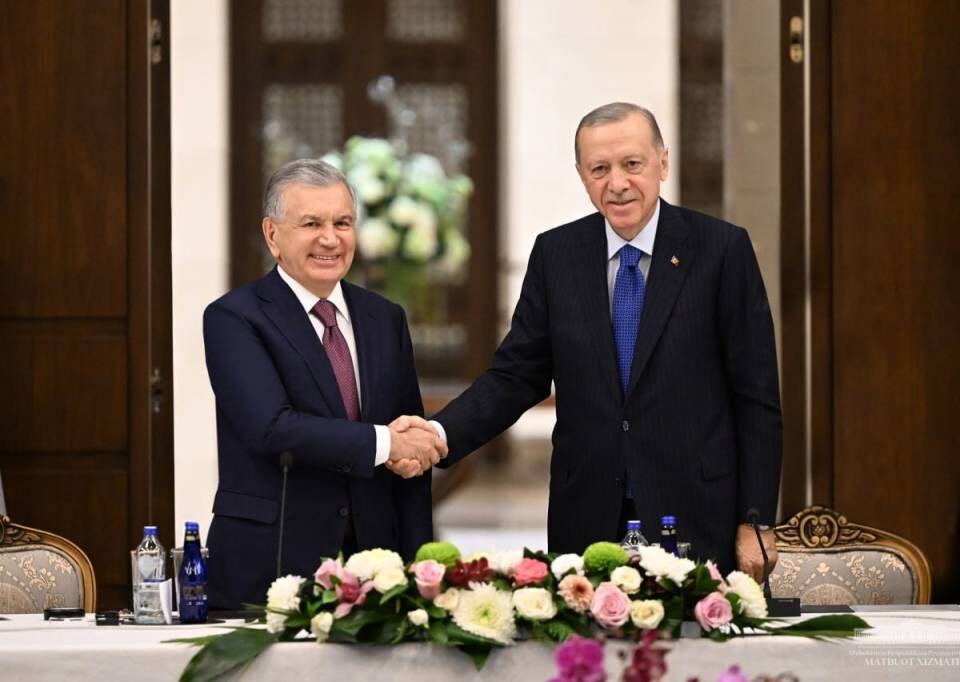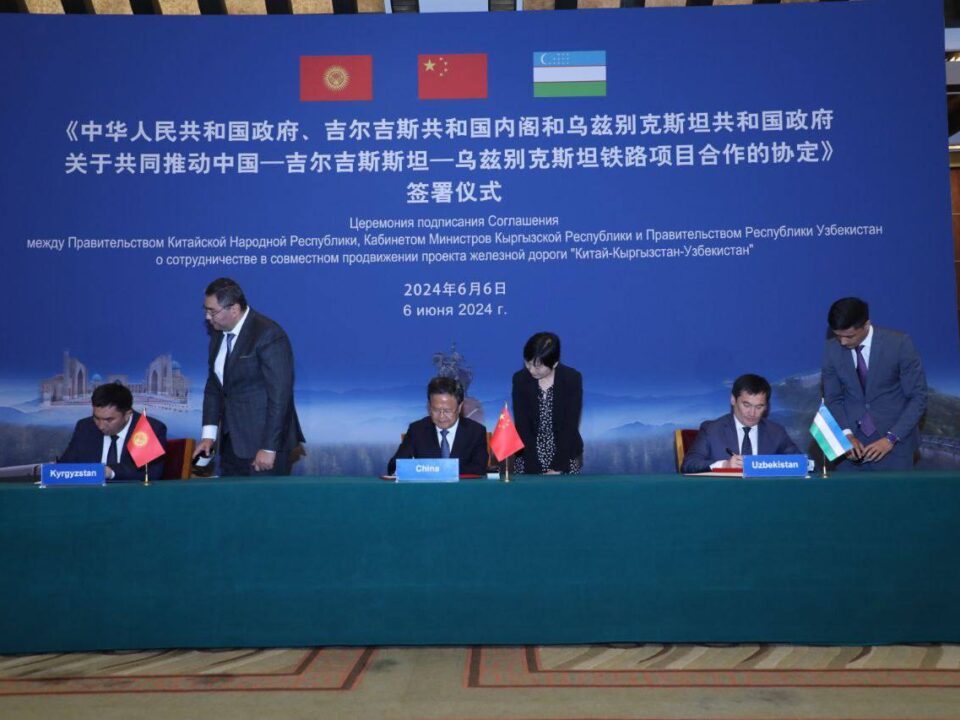Nowadays, small business is an integral component of any healthy economy. It not just fills the gaps that are inaccessible to large businesses and the state, but also makes the national economy more flexible and most effective in facing external challenges in the conditions of global instability.
Success stories
Examples abound: the countries whose governments take integrated measures to support the private sector and create an enabling business environment for small business development rank among the world’s most successful economies – Germany, Japan, South Korea, the United States and Great Britain. This is the reason why Uzbekistan assigns maximum support for the economy’s high-speed drive as a key goal for the near future.
Today, Uzbekistan assigns special part to the implementation of integrated measures to simplify the business-related procedures like obtaining licenses, ensure their transparency as part of further liberalization of the business environment and reduction of government regulation.
Private entrepreneurship scarcely existed in Uzbekistan in the early years of independence, while today more than half of the country’s gross domestic product is produced by small businesses. Nine of the ten economic entities are representatives of small business. Over 45% of industrial production and 98% of agricultural production accounts for small business today.
In 2016, the share of small businesses in GDP increased to 56.9% (against 56.5% in 2015), investments – up to 40.3% (36.3%), in construction – up to 70.7% ( 68.4%), in the retail commodity turnover – up to 89.6% (87.1%). Ongoing measures on building business environment, full support and further stimulation of development of small business and private entrepreneurship have been contributing to the establishment of nearly 32,000 new small business entities in the current year.
Within the framework of support for entrepreneurial activity and establishment of small manufactures in 2016, small business entities received 15.9 trillion soums of loans, which is 1.3 times more YOY, including 3.3 trillion soums of microcredits, and $206.7 million of credit lines of international financial institutions.
Big Contribution of Small Business
Experts point out to the key role of private entrepreneurship in provision of employment and raise of the incomes of the population. 78% of the employed population is engaged in small business sector. Over 52% of the income structure of the population falls to entrepreneurial activity, suggesting the increasing importance of this sector in raising the level and quality of life.
Consistent efforts on creation of favorable business climate, ensuring of priority of private property, elimination of barriers and obstacles to the development of entrepreneurship have largely ensured the success of ongoing structural reforms in Uzbekistan.
Over the past four years alone, Uzbekistan has adopted more than 15 laws that are called to enhance the role and protection of private property, further improve the business environment and conditions for doing business. The business related regulatory and legal framework has been almost completely renewed. Hundreds of permissive and licensing procedures for entrepreneurial activities were abolished.
Active measures have been taken to introduce a simplified and transparent tender-based procedure of granting plots of land to business entities, their turnkey connection to engineering and communication networks. Financial support and loaning have been significantly expanded.
The follow-up of reforms on further strengthening of protective guarantees for private property, eliminaiton of barriers and obstacles to the development of entrepreneurship, ensuring of inevitability of liability of government officials for obstruction and unlawful interference in business activities has become a priority direction of the new leader in structural transformations in the economy.
This is the reason why the Decree ‘On additional measures to ensure accelerated development of entrepreneurship, full protection of private property and quality improvement of business environment’ of October 5, was among the first documents signed by Shavkat Mirziyoyev on the post of president. The document approved a program of 42 integrated specific measures in five priority areas, including legal regulation of business activities, reduction of audits and prevention of unjustified interference in business activities, further liberalization of the responsibility of business entities, improvement of the financial system, taxation and customs, as well as improvement of the conditions for doing business, enhancement of investment attractiveness and international rating of the republic.
The Decree drew particular attention to a fundamental revision of the system of control of entrepreneurial activity. It was decided to cancel all types of unscheduled audits of business entities, as well as counter checks, including those related to criminal cases that limit the legitimate rights and interests of entrepreneurs.
Development of a draft law on the institution of a business ombudsman under the country’s Parliament is another important initiative. Far not all democratic countries in the world run such a supreme institution, so it is worth recognizing that Uzbekistan has made a radical step in strengthening legal guarantees for the development of entrepreneurial activities and representing the interests of business structures in their interaction with the government, law enforcement and supervisory bodies.
Along with measures on protecting private property and supporting the development of small business, the Government attaches importance to the creation of favorable conditions for attracting private foreign capital. As part of creation of advantageous environment for foreign investors, Uzbekistan approved a provision that stipulates remaining of tax rates and other mandatory payments for five years unchanged for enterprises with foreign investments, as of the date of their registration in Uzbekistan. According to the World Bank’s Doing Business 2017, the level of tax burden in Uzbekistan is lower than in most OECD countries, the USA, Japan and China.
It is worth to mention that Uzbekistan has been retaining the high 25th position in the ‘Enterprise Registration’ rating of Doing Business 2017 report as a result of recent measures on dramatic simplification of business registration procedures, introduction of a ‘single window’ system and online state registration.
Promising Opportunities
The above-featured measures will undoubtedly be promoted by the ongoing reformation of the state services system based on the ‘single window’ approach. In early February, a resolution of the President of Uzbekistan Shavkat Mirziyoyev transferred urban and rural unified state services centers for business entities from the structure of local municipalities to the jurisdiction of the Ministry of Justice.
Experts say that such a step will allow establishing vertical management of these structures, define a system-based approach to the organization of their functioning and interaction with other government bodies.
At the same time, the state registration of all business entities, with the exception of banks and credit bureaus, their branches and representative offices, is entirely entrusted to ‘single window’ centers. This measure is aimed at creating a unified mechanism for state registration and registration of business entities instead of the current disparate system.
Today, the ‘single window service’ offers processing of 16 kinds of licensing documents for business activity. In pursuance of further expansion of the positive practice, it is planned to gradually introduce another 86 types of the most popular licenses and permits by 2020.
In order to obtain certain licenses and permits, business entities can directly contact ‘single window’ centers and get them in accurately defined terms without visiting other structures. Moreover, ‘single window’ centers are assigned to coordinate the approval of all the documents with other agencies without involving a business entity.
The head of state has canceled as of January 1, 2018 the requirement for mandatory processing of licenses and permits that are issued through the ‘single window’ on specific paper forms.
The mechanism will be replaced by a specialized information electronic system ‘License’, which is scheduled for launch in the first quarter of 2017. It will allow businessmen obtaining government services in electronic form through ‘single windows’ without visiting other agencies, monitoring the progress and results of consideration of applications for permits and licenses, regardless of the place and kind of application.
This kind of a portal will help to build a centralized system of issuing licenses and permits, independent of government agencies. After commissioning, it will provide 40 types of licenses and permits. It is expected that by 2019, the service will provide all types of licenses and permits available in Uzbekistan.
Another interesting initiative comes to the establishment of specialized innovative technology parks for small businesses in Tashkent, and across the country in the long term. The first two are scheduled for Yashnabad and Almazar districts of the capital city. The draft resolution on their organization was developed by the Ministry of Economy of Uzbekistan.
The Technopark in Yashnabad district will be established for research and organization of small innovative manufactures in the field of materials science, electronic devices and controllers, food and biologically active additives, medicines. In turn, the technopark in the Almazar district will be responsible for the development of metal processing technologies, energy saving, alternative energy sources and electronic measuring instruments, robоtics, engineering and electronics.
The list of major tasks includes the conduct of innovative research, organization of pilot industrial and small innovative enterprises for the production of high-tech, competitive, domestically and internationally marketable products. In addition, they will have to introduce up-to-date foreign technologies and adapt them for domestic producers, involving domestic and foreign investors with the experience of organizing high-tech and innovative industries.
Among other things, technoparks are entrusted with the establishment of close cooperation between higher educational institutions, academic science and industries to make research and innovation projects more effective, and engage scientists, highly qualified specialists, practitioners, and students in these processes.
At the same time, technopark participants will be exempt from land tax, profit tax, legal entity property tax, improvement and social infrastructure development tax, a single tax payment for microfirms and small enterprises, as well as mandatory contributions to state target funds.
It is also planned to provide them with privileges for customs payments for imported equipment, raw materials, materials, reagents and components they need for their own production and construction needs. Another incentive for participants of technology parks will come to privileges in obtaining concessional loans for a period of not less than seven years and a grace period of two years with an interest rate not exceeding the refinancing rate of the Central Bank. The status of the technopark participant will be provided for up to 10 years.
A Credible Pillar
Banks have actively got into the development of small business and involvement of new enterprising and enterprising citizens in the process. Today, absolutely all credit and financial organizations of Uzbekistan are running their own programs on extensive lending and involvement of the population in entrepreneurial activities.
Speaking at a joint meeting of bоth chambers of the Parliament last December, the President of Uzbekistan Shavkat Mirziyoyev noted that commercial banks should change their approach to work. The head of state entrusted the financial institutions with a specific mission to create optimal conditions for citizens to get involved in entrepreneurship through communication with each family.
The banks did not delay the task in the long box. In particular, the employees of one of the largest credit institutions in the country – Agrobank – intend to visit nearly 1.3 million homes in 813 settlements. The bank even established a special unit for that purpose. Specialized departments have also been opened in the bank’s offices in Karakalpakstan, provinces and 176 branches.
Bank employees detail the residents on the opportunities of starting a business, and take measures to allocate credit funds in a short time. To date, thousands of qualified specialists have been recruited to the new departments and units of various banks.
Distribution of registered letters with specific questionnaires in residential houses is another common way of bankers to draw citizens’ interest in entrepreneurship.
The recently established Small Entrepreneurship Guarantee Fund will render financial help to new business entities. The State Committee for Demonopolization and Development of Competition, along with other shareholders – Association of Banks of Uzbekistan, Chamber of Commerce and Industry, as well as a several major banks and insurance companies, are major founders of the fund.
The Fund, according to experts, was established with the purpose to further improve the business climate and accelerate the development of entrepreneurship. It is called to secure banks in providing loans for small businesses in the part not covered by a mortgage up to 50% of the loan amount, but not more than $100,000.
Experts of the State Committee for Demonopolization and Development of Competition rank the lack of collateral among the main obstacles to obtaining a bank loan by small business entities, which is the most frequent reason for loan rejection.
The Guarantee Fund will contribute to the solution to this problem, as it is called to secure banks in providing loans to small businesses, in the part not covered by collateral. The Guarantee Fund will also provide consulting assistance to small business entities on the terms of allocation of bank loans, as well as assist them in establishing high-tech and innovative industries.


























